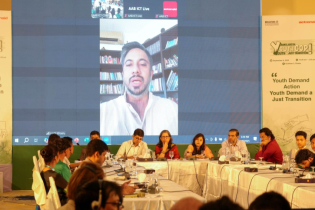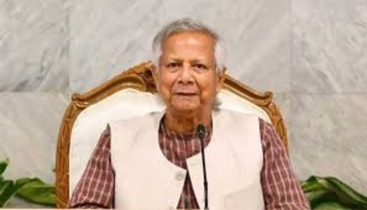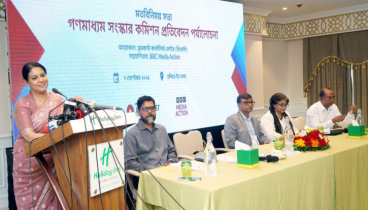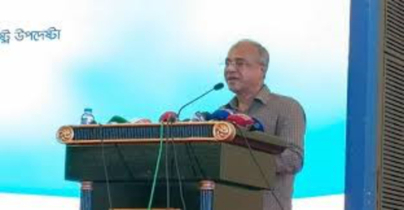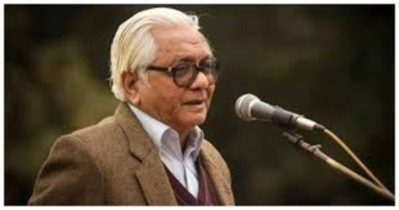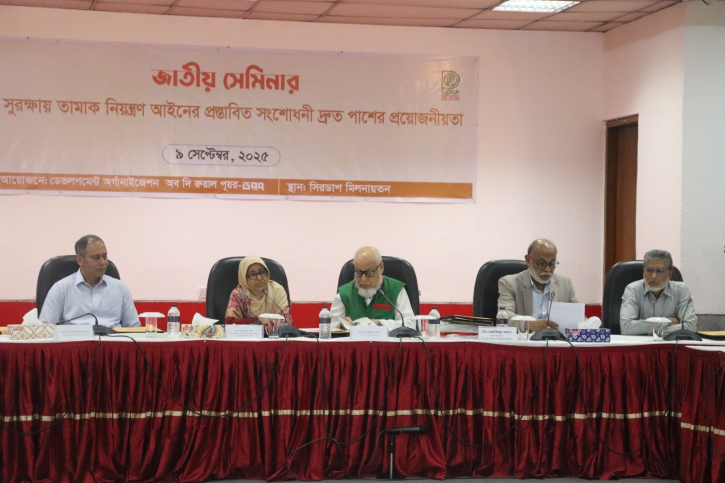
To safeguard public health and move towards a tobacco-free Bangladesh, Development Organisation of the Rural Poor-DORP organized a national seminar on Tuesday, 9 September 2025, at the CIRDAP Auditorium in Dhaka. The event was titled “The Urgent Need to Pass Proposed Amendment to the Tobacco Control Law for Public Health Protection.”
The seminar began with a welcome address by A.H.M. Noman, Founder and Chief Executive of DORP, followed by a keynote presentation by Mohammad Zobair Hasan, Deputy Executive Director of DORP. In his paper, Hasan highlighted six major proposals included in the draft amendment prepared by the Health Services Division in line with the WHO Framework Convention on Tobacco Control (FCTC). These are: eliminating designated smoking areas in public places and transport; banning the display of tobacco products at points of sale; prohibiting corporate social responsibility (CSR) activities by tobacco companies; taking measures to protect children and young people from the harmful effects of e-cigarettes; prohibiting the sale of loose or single sticks of tobacco products; and increasing the size of graphic health warnings on tobacco packaging from 50% to 90%.
As Chief Guest, Nurjahan Begum, Adviser to the Ministry of Health and Family Welfare, emphasized that there is no alternative to the swift passage of the proposed amendment if Bangladesh is to achieve its goal of becoming tobacco-free. She further stated that there is no scope for considering the opinions of tobacco companies in the amendment process, and urged the Honorable Chief Adviser to prioritize the immediate passage of the draft amendment without delay.
Speaking as a Special Guest, Md. Akhtaruzzaman, Director General of the National Tobacco Control Cell, pointed out that tobacco-related diseases kill 161,000 people in Bangladesh every year—an average of 442 deaths per day—while leaving millions more ill. He criticized the tobacco industry for spreading false claims that the passage of the proposed amendment would result in significant revenue loss for the government. In reality, he explained, the opposite is true: since the Tobacco Control Law was enacted in 2005 and later amended in 2013, government revenue from tobacco has increased more than twelvefold in 18 years, even as tobacco use fell by 18% between 2009 and 2017. This clearly demonstrates that stronger tobacco control does not negatively impact government revenue.
Munshi Alauddin Al Azad, Member of the NDC and former Secretary, strongly condemned the recent decision by the Advisory Committee reviewing the 2024 draft amendment of the Smoking and Tobacco Products (Control) Ordinance, which suggested that input should be taken from the tobacco industry. He said this is a blatant violation of Article 5.3 of the WHO FCTC, which obliges Bangladesh, as a signatory, to keep the tobacco industry completely out of the policymaking process. In the presence of the Health Adviser, he urged the government to cancel this decision and move forward with the swift passage of the proposed amendment.
Hossain Ali Khondoker, former Additional Secretary of the Health Services Division, referred to a recent statement made by Honorable Chief Adviser Dr. Muhammad Yunus, who warned that if young people are not made aware of the dangers of tobacco, the future of the next generation will be in grave jeopardy. Khondoker stressed that the priority in the amendment process must be public health, not the interests of the tobacco industry. He added that no consultation should be organized to include the industry’s opinion. The Ministry of Health has already taken steps to develop and implement guidelines for compliance with Article 5.3 of the FCTC, and there is no scope for violating those guidelines.
Youth advocates Tabassum Khanom Ratri and Sabur Ahmed Kajol also spoke at the seminar. They called on the government to protect public health by swiftly passing the proposed amendment without seeking or accepting input from the tobacco industry.
TH

.png)


